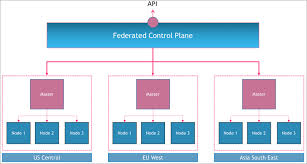Kubernetes Without Scale: Setting up a Personal Cluster, Part 2
Source:-containerjournal.com In Part 1, we discussed some good reasons to run your own Kubernetes cluster, even for software that doesn’t need high scalability and reliability. We showed that installing and managing third-party applications such as Ghost becomes as simple as helm install, and that strong support for infrastructure as code makes Kubernetes a great way maintain your “production” environment. Typically, Kubernetes runs across several different machines, which allows applications to scale up and down with a high degree of resiliency. But
Read more

